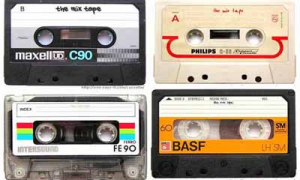 … não era preciso subir impostos porque estes burros davam conta do deficit e da dívida.
… não era preciso subir impostos porque estes burros davam conta do deficit e da dívida.
“Regresso do IVA da restauração aos 13%” – sim, boa ideia! Vamos deitar fora quase 10% da receita necessária para pagar a dívida num serviço que não é necessidade primária. E pelo caminho induzimos também as pessoas a gastar mais e a poupar menos. E financiar botecos que apenas sobrevivem porque têm rendas baixas, evitam os impostos ao não passarem factura.
“Recuperar o imposto sobre heranças” – brilhante! Vamos lixar a grande maioria dos portugueses e acrescentar à dor de perder um familiar a dor de ser roubado pelo Estado nos poucos bens que o familiar pôde deixar de herança. Mas assim podemos dizer que estamos a lixar os ricos. Independentemente do valor que seria obtido ser um valor marginal cobrado a uma franja da população, os “ricos”. Só que o Zé Povinho não percebe até levar a ripada mais tarde.
“Impostos de 0.3% sobre valores mobiliários” – wow! Vamos por mais impostos em cima da malta da classe média que tem umas acçõezitas da PT, da Sonae… Mas, mais uma vez, podemos dizer que é um imposto para os “ricos”.
“Agravar TSU para empresas que se deslocalizem” – é isso! Vamos pegar nas empresas que já pusemos de gatas com tantos impostos e taxas e cobrar-lhes ainda mais. Assim esses “ricos” morrem de certeza. E sempre os incentivamos a deslocalizarem-se de vez.
“Impostos sobre Obrigações do Tesouro” – nem mais! Vamos cobrar mais impostos a quem emprestou ao Estado comprando as obrigações. Ficamos com menos dinheiro porque menos pessoas irão emprestar ao Estado comprando obrigações. Em particular as grandes organizações de investimento (por exemplo os fundos de segurança social dos outros países): vamos dizer-lhes para nos deixarem de comprar milhões em Obrigações do Tesouro.
“Criar uma taxa para produtores de electricidade” – sim! Vamos fazer com que a electricidade fique mais cara. E ainda dá para cobrar mais impostos a quem instalou painéis solares. E às empresas que investiram em reciclagem e em produção alternativa de energia.
“Limitar juros do crédito ao consumo” – em cheio! Vamos diminuir o número de instituições ainda capazes de emprestar dinheiro. E pelo caminho ainda impedimos uma catrefada de pessoas de poderem de recorrer a empréstimos quando precisam deles.
“Taxação de dividendos sobre as SGPS” – bingo! O que é que essas SGPS que criam e gerem outras empresas querem? Têm de pagar. Cobramos IRC nas empresas detidas pelas SGPS e depois cobramos IRC e taxa de dividendos na SGPS. Se sobrar algum dinheiro, ainda cobramos IRS aos patos que criaram a SGPS e que criaram empresas e empregos.
“Limitar juros da dívida a 2.5% das exportações” – pois claro. Se eu consegui chegar ao banco e dizer-lhes que agora estavam limitados a cobrarem-me no máximo 2.5% do meu salário, porque é que o Estado não há-ser capaz de obrigar os investidores internacionais ao mesmo limite? Têm de pagar pelo privilégio de nos emprestarem dinheiro.
Cambada de estúpidos. E é suposto o Louçã ser economista.


